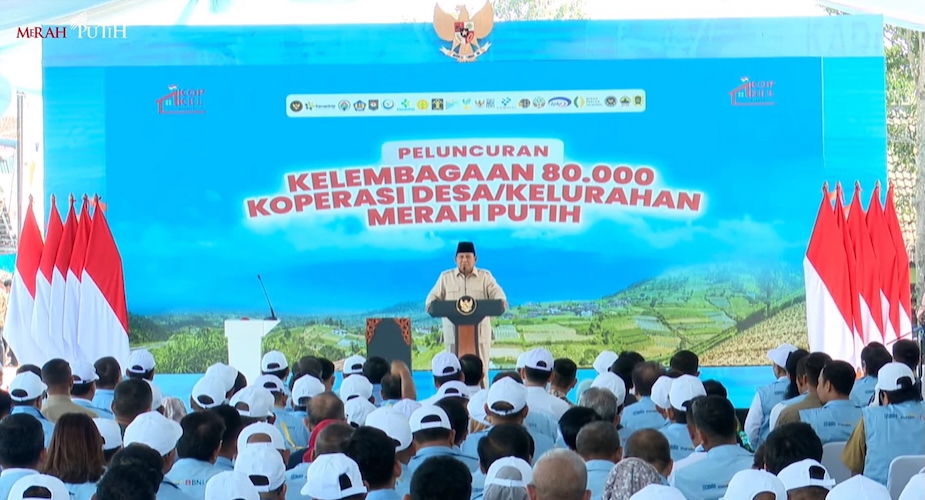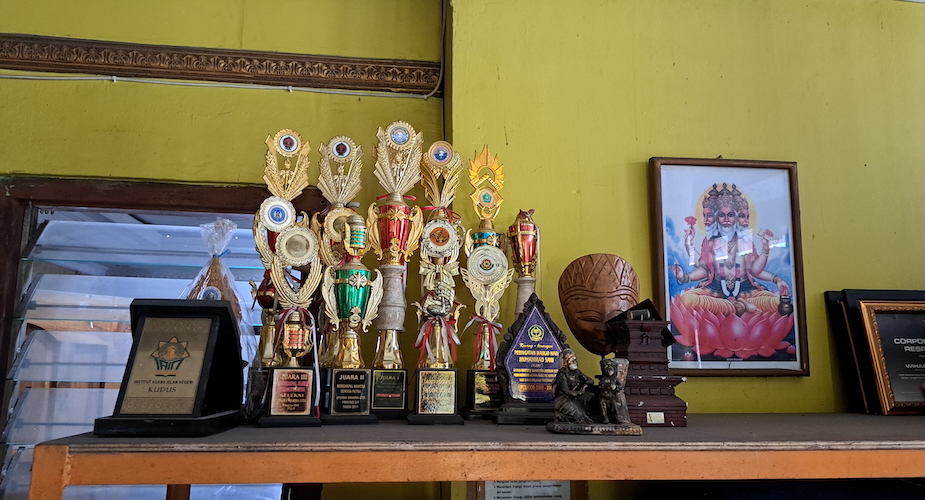Indonesia is on track to achieve universal primary education, but questions remain about the quality of education
Daniel Suryadarma
The second of the Millennium Development Goals (MDGs) is the achievement of universal primary education for boys and girls by 2015. Indonesia is well-placed to achieve this target. However, the MDG misses a very important issue: quality of education. This has now been included in the latest draft of the Sustainable Development Goals, which countries must achieve by 2030. With this inclusion, Indonesia’s gleaming performance in the MDG on education will very likely come to an abrupt halt.
Within reach of universal primary education
Indonesia began investing in primary education in the mid-1970s. It used the windfall from oil exports to construct at least one primary school in each of its more than 60,000 villages. By 1988, all but 0.4 per cent of school-age children were enrolled in or had completed primary education. The significant public investment in education continues to increase. Currently, about one-fifth of Indonesia’s total public spending is put toward education.
This achievement is far above average. Boys and girls have the same primary school enrolment rates. The share of children from poor families who finish primary education continues to increase, from 82 per cent in 1993 to 93 per cent in 2009. Some still drop out of school before completing primary education, but by international standards Indonesia is doing very well.
A conundrum that the government may face is whether to spend resources to reach the very few children that do not yet have access to primary education, or to invest those resources in secondary and tertiary education. Doing the former would all but ensure universal primary education, but the marginal cost per student would likely be very high. The latter measure would likely achieve greater value for the cost, but not be universal.
Looking beyond the MDGs, a similarly encouraging trend is taking place in secondary education enrolment. Secondary school participation continues to rise, including among children from poor families. Nonetheless, poverty remains the largest impediment to education attainment. A national household survey in 2009 showed that six out of 10 children who dropped out of secondary school did so due to financial constraints.
Concerns about quality
Although Indonesia has made significant progress towards achieving the second MDG, concerns remain about the quality of education students receive. Two major international achievement tests —the Programme for International Student Assessment (PISA) and the Trends in International Mathematics and Science Study (TIMSS)—rank Indonesian students near the bottom. For example, the latest TIMSS test in 2011 found that 57 per cent of eighth grade students in Indonesia lacked basic mathematical knowledge.
More worryingly, the quality of education in Indonesia has remained low over the past 15 years. The TIMSS results since 1999 have consistently indicated this. So, while Indonesian children have been spending more time in school compared to children a decade ago, there has been no observable increase in knowledge. Similarly worrying is the fact that the gap in mathematics knowledge between children from poor and rich families remains wide, despite the significant narrowing in the education attainment gap. This implies that children from economically disadvantaged families are enrolled in schools with inferior quality. These facts stand in stark contrast to the significant increase in public spending on education and implementation of various public policies aimed at improving student learning, such as the teacher certification program, over the same period.
Nurturing the high achievers
The final issue that needs to be addressed is the nurturing of talent. The debate surrounding education in Indonesia continues to be dominated by issues like dropping out of school, failing the national examination and the low skills of students. While all these issues are relevant and need to be addressed, there is a small group of extremely high achieving students who are largely ignored. These are the students who win international accolades; individuals who, if nurtured in the right way, could go on to provide important contributions in a range of social, economic and academic fields. Some could produce technological innovations and become the country’s future leaders. At this point, there is very little attention paid to ensuring that these children can make the most of their potential. In fact, very little is known about these high achievers beyond crude approximations. If education policymaking continues to ignore them—except when they win international science olympiads—then they may fall short of their full potential. Should that occur, the country as a whole loses out.
Indonesia is overachieving relative to its MDG target on education. Universal education has been nearly achieved at primary school level. Secondary school participation also continues its upward trend. However, two larger challenges need to be addressed: improving the low quality of education, and nurturing highly talented individuals to reach their full potential. Indonesia needs to address both of these challenges if it wants to improve its global competitiveness and sustain quality economic growth. Given the long lag between policy and other interventions and the outcomes they can achieve, the sooner these challenges begin to get addressed, the better.
Daniel Suryadarma (daniel.suryadarma@anu.edu.au) is an applied development microeconomist. He conducts empirical research in the areas of education, poverty, social policy and the interplay between forests, environment and livelihoods. He is a senior scientist at the Center for International Forestry Research, and is a visiting fellow at the Australian National University and SMERU Research Institute.












